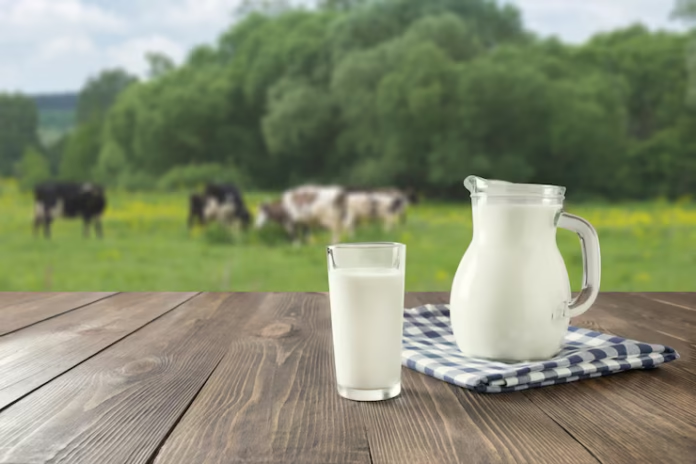ISLAMABAD: Milk, once considered the most basic nutritional necessity, is fast becoming a luxury item in Pakistan. The country’s formal dairy industry is in deep crisis, and the Pakistan Dairy Association (PDA) is now urging the government to urgently reduce the 18% General Sales Tax (GST) on milk and dairy products—calling it a policy disaster that’s crippling businesses, hurting farmers, and pricing out consumers.
Industry leaders fear the very foundation of Pakistan’s dairy sector could collapse if the tax remains in place. Speaking at a media briefing, PDA officials, including Chairman Usman Zaheer Ahmad, CEO Dr. Shehzad Amin, Tetra Pak’s Noor Aftab, Friesland Campina’s Imran Husain and Dr. Muhammad Nasir, and Nestlé Pakistan’s Aatekah Mir-Khan, painted a grim picture of the aftermath of the 2024 Finance Act, which transformed milk from a zero-rated to a heavily taxed item.
“This is not just a business issue—it’s a national nutrition crisis,” said PDA officials. They noted that no other country in the world taxes milk at this rate, not even the richest ones. The sudden imposition of 18% GST on both liquid and powdered milk, they said, is a globally unprecedented move, especially in a country grappling with widespread food insecurity.
The ripple effects are being felt most acutely in Pakistan’s villages, where small-scale dairy farmers are being pushed out of the formal supply chain. According to PDA, formal milk collection has dropped by 20%, forcing over a third of the sector’s partner farmers to shift to the unregulated loose milk market. Nearly 500 milk collection centers have shut down, and the industry has been forced to suspend over Rs. 1.3 billion in annual farm-level investments. At the same time, the financial incentives farmers used to receive—Rs. 10 to 15 per liter for supplying clean, quality-assured milk—have evaporated.
Oddly enough, while formal milk prices have soared, farmers aren’t earning more. Loose milk is now being sold at Rs. 30–40 more per liter, but those extra earnings aren’t reaching the people who produce it. This disruption has made dairy farming less viable and less productive, further reducing rural incomes.
On the consumer front, the situation is no less dire. Retail prices of packaged milk have risen from Rs. 280 to Rs. 350 per liter, making it out of reach for millions of Pakistanis. A Nielsen study found that two-thirds of consumers earn less than Rs. 50,000 per month, forcing many to abandon safer, packaged milk in favor of cheaper, but often unsafe, loose milk. The PDA warns that this shift undermines decades of progress in food safety, especially for children and vulnerable groups.
The financial impact on the formal dairy sector has also been severe. Companies report more than a 20% drop in volumes, widespread layoffs, processing plants operating at half capacity, and a complete freeze on new investments. The tax has also halted industry efforts to expand dairy exports—despite the sector’s estimated $30 billion export potential.
Ironically, the only winners in this situation appear to be the informal milk sellers—gawalas and shopkeepers—who have gained an estimated Rs. 1,319 billion annually due to the price gap created by the GST. PDA representatives warned that this shift is fueling the undocumented economy and weakening government oversight on food safety.
In an effort to prevent further damage, the PDA has urged the government to slash GST on milk from 18% to 5% starting July 2025. The association believes this would allow volumes to bounce back by at least 20%, increase tax revenue by 22% year-on-year, and help the sector return to a growth path by Year 3. PDA officials said the move would also reduce the informal sector’s dominance, restore investments, and improve access to safe and affordable nutrition.
As a goodwill gesture, the PDA has offered to slash milk prices by Rs. 50 per liter if the tax is reduced to 5%. The proposal, industry insiders say, represents a rare win-win: one that supports struggling farmers, protects consumers, revives industry, and boosts government revenue—while reinforcing national nutrition and food safety goals.
With budget season around the corner, the ball is now in the government’s court. Will it act to rescue the nation’s most essential food item before it slips further out of reach?




